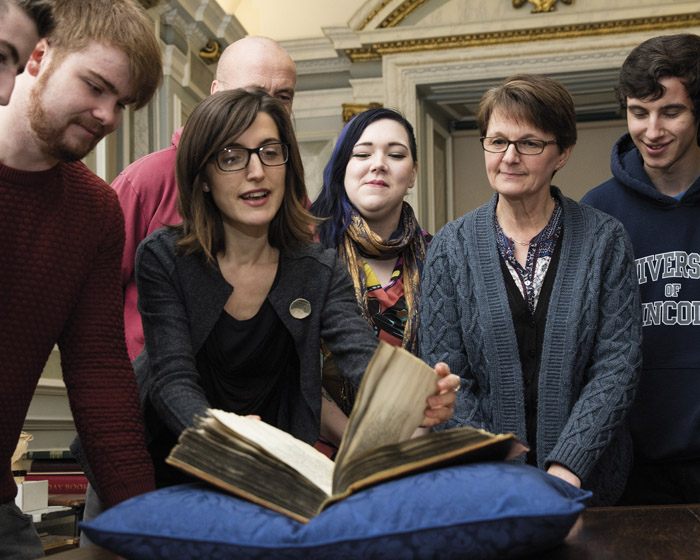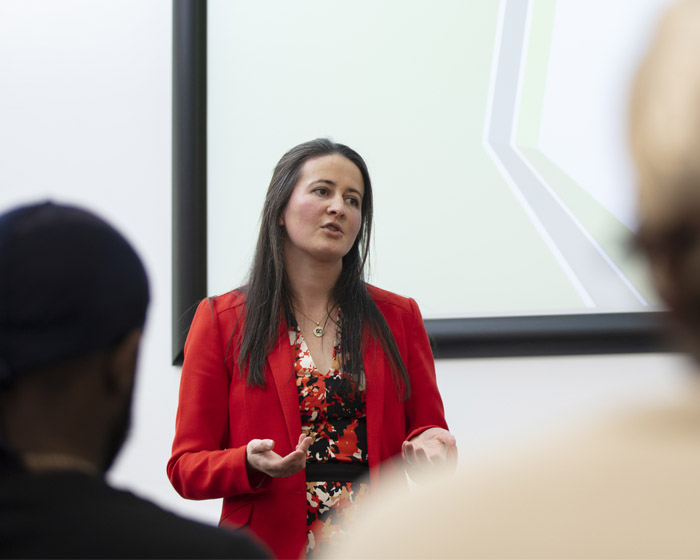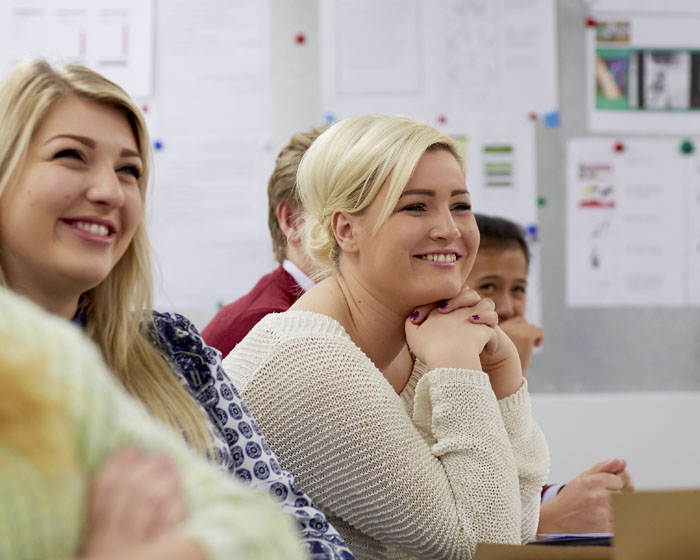/prod01/university-of-lincoln-cdn-pxl/media/responsive2017/research/Research,case,stuides,banner.jpg )
Strategic Plan
Research and Knowledge Exchange
Our Ambition
We have the long-term ambition to establish a global reputation for research, knowledge exchange, and impact, and to be among the top 15 in the UK by 2050. We will strive to position ourselves firmly in the UK top 50 for research and global top 500 by 2027.
Our Vision
To establish an international reputation for challenge-led, co-created, impactful research and knowledge exchange that addresses global and regional priorities.
Our Themes
We Collaborate
We work across disciplinary boundaries and with external partners to address grand research challenges, both regionally and globally.
We Challenge
We cultivate areas of research focus where our work is world-leading, we challenge the boundaries of knowledge and the global reputation of the University grows.
We Transform
Our challenge-based research, co-created with our partners, has real-world impact, transforming our region economically, socially and culturally, and contributing to the betterment of humanity.
Our Priorities
Our research ambition is structured around three priority areas for change: Growth, Culture, and Collaboration.
Growth
The University of Lincoln has grown its research and knowledge exchange dramatically over the last decade, both in volume and in quality. To fulfil our ambitions we need to continue on this positive trajectory, establishing greater scale and quality across the breadth of our portfolio, alongside a distinctive reputation.
We will intensify research and knowledge exchange activity and focus on areas of strength and opportunity.

We will do this by:
Respecting academic freedom and valuing excellent research of all forms, including challenge-led, disciplinary, interdisciplinary, fundamental, practice-based, individual, collaborative, and co-created research.

We will do this by:
Increasing the number and proportion of research active academic staff, and establishing a cohort of internationally leading KE-active academic staff.

We will do this by:
Cultivating focal areas of unique strength, including challenge-based and impactful research and knowledge exchange that aligns with our regional priorities and/or with global sustainability goals.
We will achieve sustainable intensification by significantly growing external income.

We will do this by:
Setting clear expectations for high-quality bidding, by providing resources for research bidding support, and by focusing additional resource in areas of success.

We will do this by:
Aligning activity, where consistent with our strategic aims, with regional, national, and global funding priorities and opportunities.

We will do this by:
Engaging in and influencing the development of national policy and funding arrangements in line with our strategy.
Culture
Our people define our university and our ambitions. A strong and inclusive research and knowledge exchange culture and ecosystem is the bedrock of success.
We will nurture a research, knowledge exchange, and impact culture that is ambitious, collegiate, focused, and agile, and upholds integrity.

We will do this by:
Providing a clear framework of expectations, support, and development opportunities that allows every member of staff including ECRs to fulfil their potential and that rewards success.

We will do this by:
Further embedding EDI practice and ensuring that all our strategic actions promote equality, diversity, and inclusion.

We will do this by:
Establishing a permeable culture and ecosystem that removes barriers to interaction within and beyond the University, integrating stakeholders, communities, and disciplines.
We will provide an environment that supports high quality, impactful research and knowledge exchange.

We will do this by:
Developing and supporting specific channels for impact including challenge-oriented research and knowledge exchange units, impact literacy, policy, IP exploitation, co-creation, and cultural and regional engagement.

We will do this by:
Enriching our postgraduate research student (PGR) culture and growing PGR numbers, including through greater collaborative activity.

We will do this by:
Investing resources in infrastructure, facilities, and services to support and promote priority activities, including collaboration across and beyond the University.
Collaboration
Collaboration is at the heart of the University’s strategy. It stretches from the local – where we work with partners in our region to address pressing social, cultural, and economic need – to the global, where we address the grand challenges that face humanity. We strive to integrate these approaches by focusing on global challenges that are rooted in local needs.
We will ground our research and knowledge exchange by working with partners to address regional priorities.

We will do this by:
Ensuring that our research and knowledge exchange portfolio addresses the regional priorities identified in our industrial research strategy, including agri-food technology, rural health, net zero, and security.

We will do this by:
Supporting co-creation, collaboration, partnership, and “living laboratory” approaches to regional research and knowledge exchange.

We will do this by:
Maximising our cultural, scientific, and other assets (including intellectual property) to foster research collaboration, knowledge exchange, and societal impact.
We will address issues of global significance to achieve global impact.

We will do this by:
Prioritising growth in research areas that address selected UN Sustainable Development Goals, and that where possible are rooted in local priorities.

We will do this by:
Forming deep, strategic institutional partnerships, including with multinational organisations that have a local footprint, supporting regional inward economic investment.

We will do this by:
Building international links, partnerships, and networks, and participating in international collaborative projects
Discover More
You can download a PDF version of our Research and Knowledge Exchange plan.